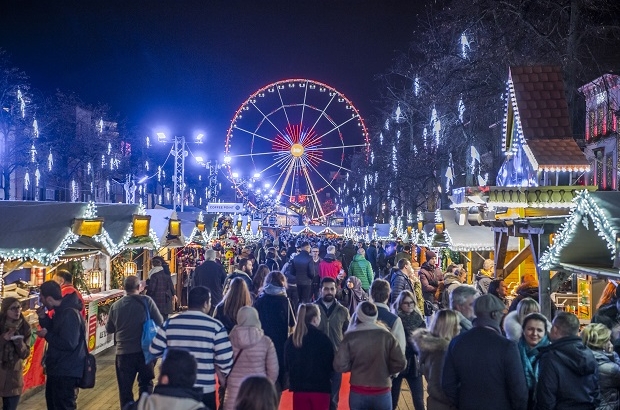- Daily & Weekly newsletters
- Buy & download The Bulletin
- Comment on our articles
Locals want changes to next year’s Winter Wonders
Residents of some Brussels neighbourhoods where the annual Winter Wonders are held say they would like to see changes to next year’s edition, and want to play a bigger role in the organisation.
Complaints were made about decorations, offerings and noise pollution related to the winter festivities, Bruzz reports.
Feedback included suggestions of “less raclette from Canada” and to “either use more public transport, or move to another location, such as around the Atomium”.
Remarks from mayor Philippe Close (PS) regarding the high number of visitors also rubbed some residents the wrong way.
“Big events are once again proving to be a must in Brussels,” Close said. “The economic impact of Winter Wonders is vital for our businesses, especially the hotel sector, which is a major source of employment.”
But as one person told Bruzz: “I am a local resident as well as a business manager, and I say 'no' to this kind of thing… A Christmas market is OK, but this? Why not go for quality instead of quantity.”
Mie Demin, a local resident and member of Citizen Council Plan B, is asking the city council to organise a meeting with residents, cafe and restaurant owners in which they can provide feedback.
Although there were two information meetings beforehand, Demin said there was also a need for an evaluation afterwards.
“The hotels are doing well, but how are the restaurants and bars doing – are the tourists coming to the Christmas market also going to eat something in the better restaurants in the area, or are they just losing customers?” said Demin.
“Participation and co-creation are the watchwords of city government. We should all realise what we want to do with the event: we want to contribute something to the local economy and hospitality, in a Christmas and end-of-year atmosphere.”
Eric Vandezande of the Sainctelette Committee supports Plan B in asking for more consultation.
“On mass events, the committees are rarely, if ever, consulted – consultation usually comes only after the harm has already been done,” Vandezande said, adding that traffic jams in the area regularly persisted for hours and residents even left the neighbourhood to escape the constant sound of car horns.
Vandezande said that if the City of Brussels is aiming for even more visitors at the next addition, he fears the worst in terms of congestion.
“The city will either have to put even more effort into promoting public transport, refer to car parks outside the city centre, bring people to the city centre with bus services, or move to another location,” said Vandezande.
Brussels Major Events said the organiser of the festivities is closely monitoring the noise to ensure it does not exceed 85 decibels throughout the event.
Spokesperson Adelaïde de Patoul also said that more toilets and public urinals will be available, adding that “the nuisance in the adjacent streets is a problem that unfortunately happens all year round and is therefore not specific to our event”.
The organiser denies that there were any major problems in terms of traffic jams this year, saying that “despite the high visitor numbers, there was never any traffic chaos. The problems at Yser and Sainctelette reported by local residents were related to the works, not the event itself.”



















